This webpage features guidance and other supporting materials for banks globally on target setting, transition finance, and transition planning for climate mitigation in line with the Paris Agreement goals.
These resources have supported almost 150 banks to develop independent and individual climate-related business strategies and to set more than 500 sectoral net-zero targets.
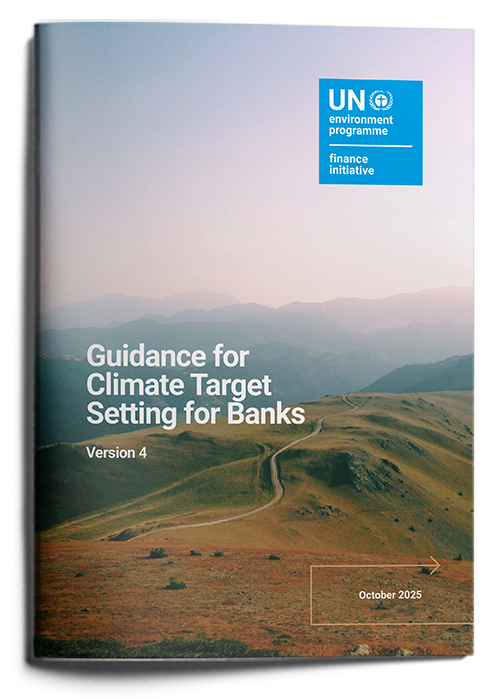 |
Guidance for Climate Target Setting for BanksPublished October 2025 The Guidance for Climate Target Setting for Banks outlines key principles to underpin the setting of credible, robust, impactful and ambitious targets for achieving net-zero greenhouse gas emissions goals in alignment with the Paris Agreement. |
Sector Publications
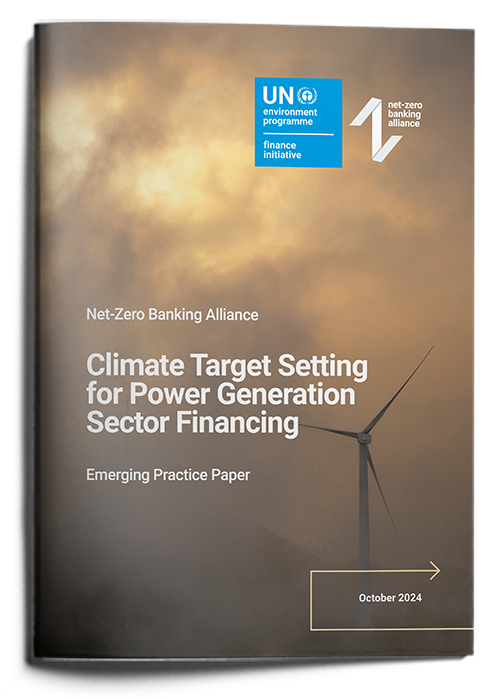 |
Climate Target Setting for Power Generation Sector FinancingPublished October 2024 ‘Climate Target Setting for Power Generation Sector Financing’ is the fifth in a series of publications developed by members of the Net-Zero Banking Alliance (NZBA) with the goal of assisting banks by outlining the choices they face when setting climate-related targets for financing in various carbon-intensive sectors of the real economy. |
 |
Climate Target Setting for Oil & Gas Sector FinancingPublished May 2024 ‘Climate Target Setting for Oil & Gas Sector Financing’ is the fourth in a series of publications developed by members of the Net-Zero Banking Alliance (NZBA) with the goal of assisting banks by outlining the choices they face when setting climate-related targets for financing in various carbon-intensive sectors of the real economy. |
 |
Climate Target Setting for Steel Sector FinancingPublished May 2024 ‘Climate Target Setting for Steel Sector Financing’ is the third in a series of publications developed by members of the Net-Zero Banking Alliance (NZBA) with the goal of assisting banks by outlining the choices they face when setting climate-related targets for financing in various carbon-intensive sectors of the real economy. |
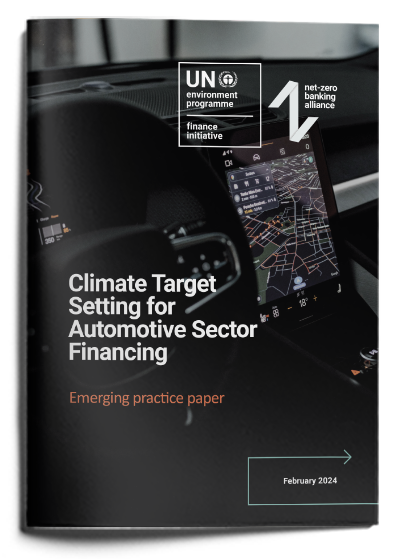 |
Climate Target Setting for Automotive Sector FinancingPublished February 2024 ‘Climate Target Setting for Automotive Sector Financing’ is the second in a series of publications developed by members of the Net-Zero Banking Alliance (NZBA) with the goal of assisting banks by outlining the choices they face when setting climate-related targets for financing in various carbon-intensive sectors of the real economy. |
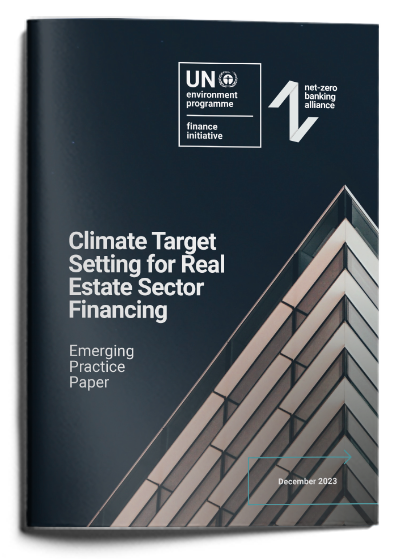 |
Climate Target Setting for Real Estate Sector FinancingPublished December 2023 ‘Climate Target Setting for Real Estate Sector Financing’ is the first in a series of publications developed by members of the Net-Zero Banking Alliance (NZBA) with the goal of assisting banks by outlining the choices they face when setting climate-related targets for financing in various carbon-intensive sectors of the real economy. |
Net-Zero Banking Resources
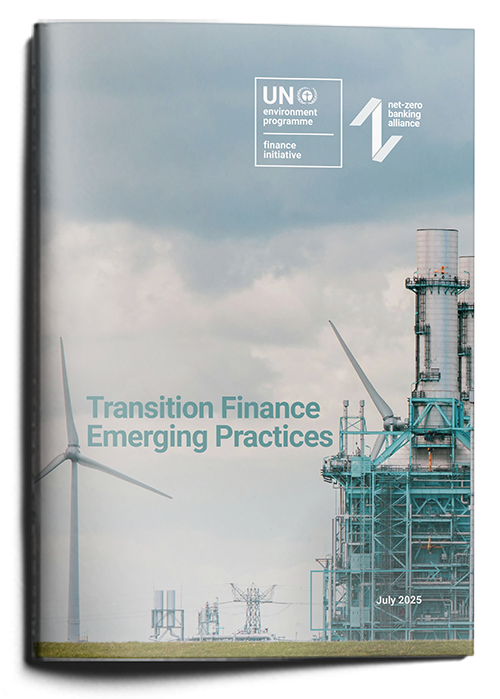 |
Transition Finance Emerging PracticesPublished July 2025 Transition finance plays a vital role in enabling high-emitting sectors to decarbonize. Building on the previous work of the Net-Zero Banking Alliance (NZBA) and other organizations, this report provides practical insights into how banks are integrating transition finance to support the decarbonization journey of their clients. Drawing from banks’ transition finance approaches and input from NZBA member banks, this report consolidates emerging practices, identifies common challenges, and fosters a shared understanding of credible transition finance approaches for banks. |
 |
Target Setting for Capital Markets ActivitiesPublished October 2024 ‘Target Setting for Capital Markets Activities’ addresses challenges banks face in setting net-zero targets for capital market activities. In summarising the findings of 22 member banks, this supporting note explores four key areas: facilitated emissions, activity scope, target design options, and implementation considerations. |
 |
Developing Metrics for Transition FinancePublished December 2023 Banks’ strategies for managing climate impact have matured, with banks moving from exclusionary policies and targeted sustainable finance to more wide-ranging engagement with clients, especially large corporates. This engagement is helping to encourage companies to set transition plans and to accelerate those plans which, in turn, will support banks’ net-zero strategies if banks have existing exposures to these clients. Financing provided to clients under such engagements is frequently described as “Transition Finance”. This paper discusses how banks may consider reporting their Transition Finance efforts. We see a need for additional specific metrics, as existing metrics may fail to provide a full picture of banks’ approaches to decarbonising their portfolios. |
 |
Supporting Note: The Use of Carbon Credits in Climate Target SettingPublished September 2023 |
 |
Transition Finance Case StudiesPublished January 2023 |
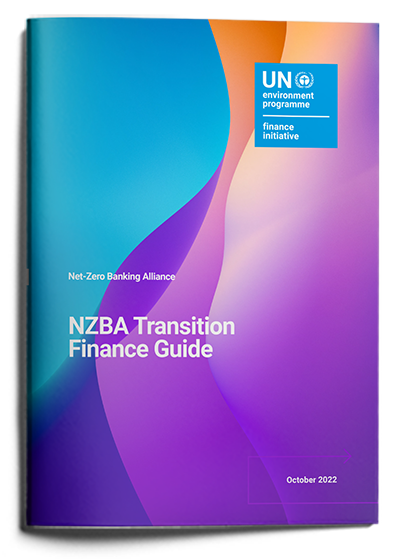 |
NZBA Transition Finance GuidePublished October 2022 |
Archive: NZBA Progress Reports
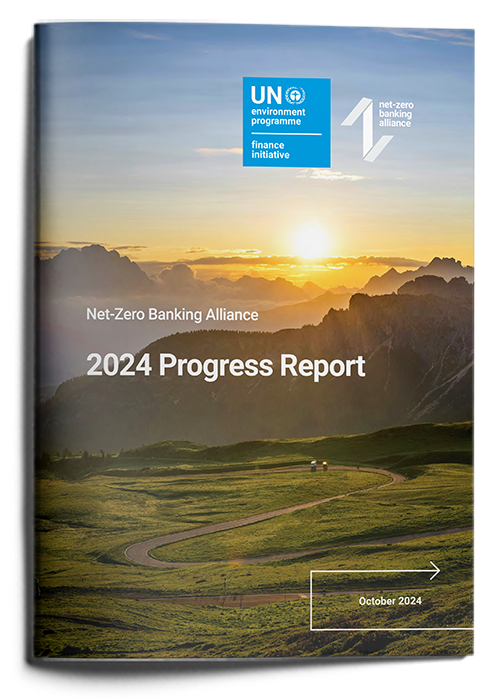 |
Net-Zero Banking Alliance 2024 Progress ReportPublished October 2024 The Net-Zero Banking Alliance’s 2024 Progress Report provides a comprehensive overview of members’ efforts towards achieving net zero by 2050. It offers insights into members’ sectoral decarbonisation targets and transition planning, with fifteen case studies from member banks on topics including green finance, client engagement, and policy advocacy. |
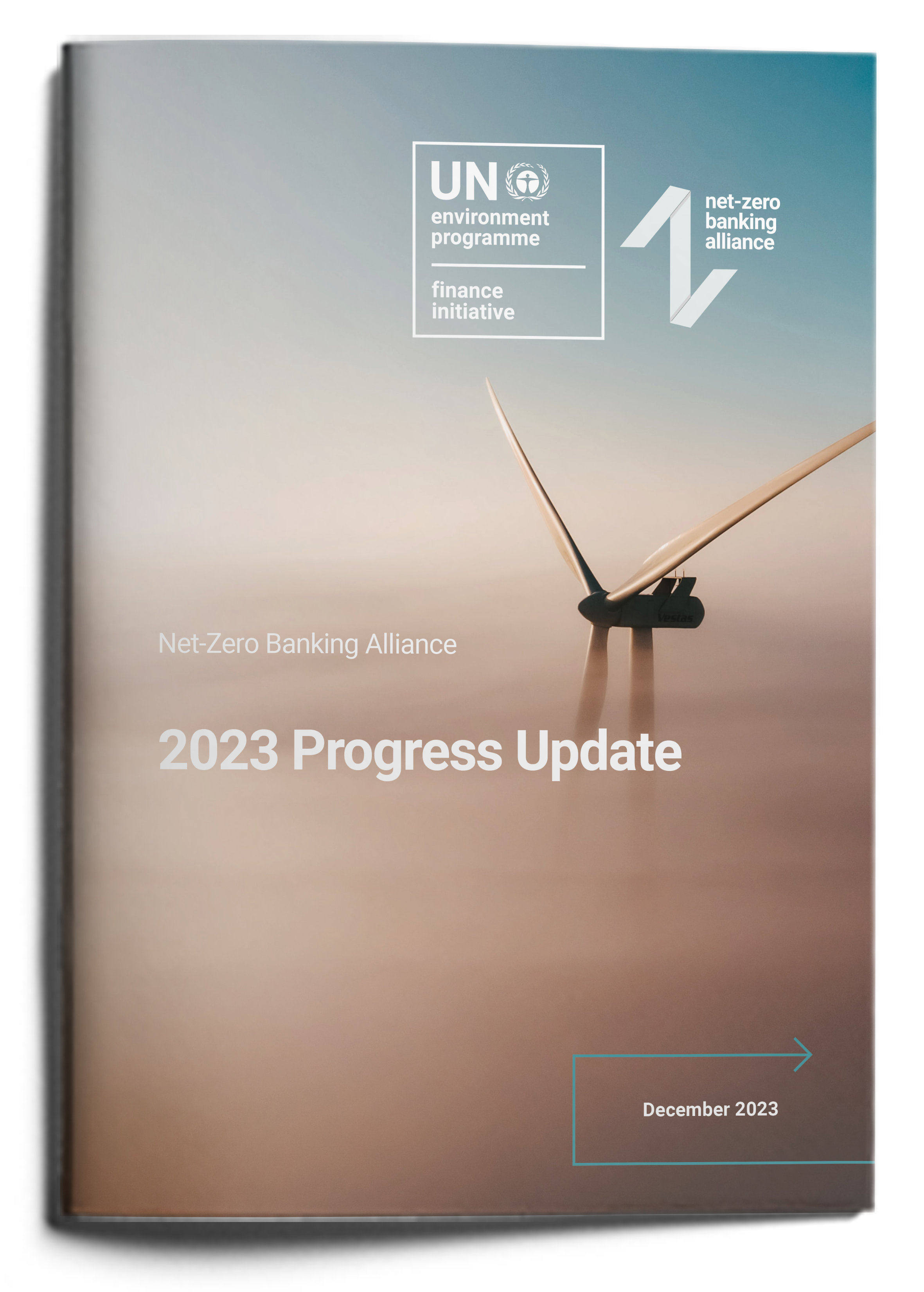 |
Net-Zero Banking Alliance 2023 Progress UpdatePublished December 2023 On Finance Day at COP28, the bank-led, UN-convened Net-Zero Banking Alliance published a Progress Update. This report provides a stocktake of new targets set by Alliance members, highlights a selection of green financing case studies from NZBA banks that showcase the large and growing opportunities across different sectors and asset classes, and summarizes relevant developments in climate-related voluntary frameworks and mandatory regulation. |
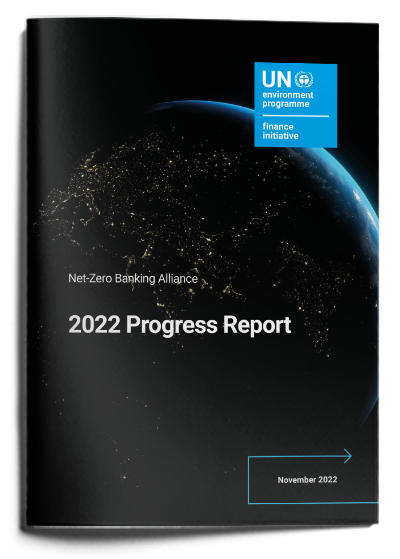 |
Net-Zero Banking Alliance 2022 Progress ReportPublished November 2022 On Finance Day at COP27, the bank-led, UN-convened Net-Zero Banking Alliance launched its first Progress Report. This report details the intermediate 2030 decarbonisation targets from over 60 member banks, with promising indicators of early progress in target setting. The publication also shares the Alliance’s wider vision for creating a predictable and enabling policy environment to accelerate the net-zero transition. |


